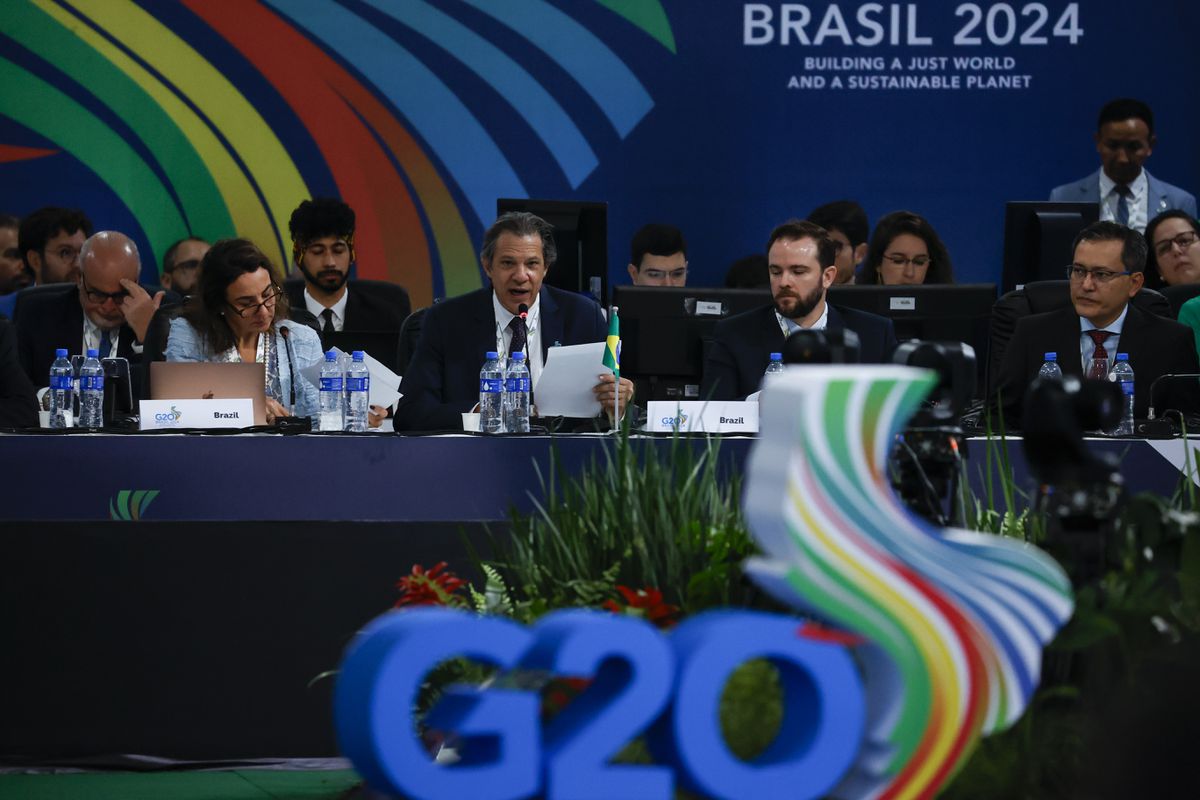“A historic step. The G7 finance ministers, like the Frenchman Bruno Le Maire, did not have strong enough words this Saturday in the United Kingdom to welcome the agreement reached on the taxation of multinationals. The economic crisis linked to Covid is not unrelated to the historic approach which seeks to tackle fiscal dumping. The massive stimulus packages deployed in Europe and, on an even larger scale, in the United States require funds. “There is not much room for maneuver on the side of household taxes, analyzes economist Stéphanie Villers. So the Western countries agree to go and touch the large multinational companies which, moreover, developed mainly during the crisis. "
This major reform of global taxation, on which the 140 OECD countries have been working since 2016, has two components.
The G7 countries (Germany, Canada, United States, France, Italy, Japan and United Kingdom) have agreed on a corporate tax rate of at least 15%.
They also laid the foundations for a mechanism to redistribute the rights to be taxed to tax multinationals where they make their profits, and no longer just where they are registered.
Joe Biden proposed a rate of 21%
This is to put an end to the fiscal dumping exercised by certain countries which have implemented lower corporate tax rates, such as Ireland (with a rate of 12.5%), the host land of numerous American digital giants, or, less well-known, Hungary (9%) “This is the culmination of twelve years of work since the 2008 financial crisis, welcomes Pascal Saint-Amans, director of the OECD, reached by phone. The objective is to recover tax on profits that have been located in tax havens, so there is an extremely important aspect of tax justice. "
This proposed minimum taxation of multinationals, supported by the OECD, was supported by Joe Biden from the start of his mandate.
The President of the United States was still pleading a few weeks ago for a rate of 21%.
The French and German finance ministers, Bruno le Maire and Olaf Scholz, declared themselves in favor in an interview with Le Figaro.
An agreement was finally reached at 15%.
"It is an essential first step because it is already to agree on a common taxation at the global level, points out Stéphanie Villers.
We must start with a rate that is acceptable for certain countries which have based their economic model on fiscal attractiveness.
We must give them time to reposition themselves.
"
Read alsoPension reform: the departure at 64 resurfaces
In a report submitted on June 1 to the Commission by the brand new European Tax Observatory, Gabriel Zucman, its director, noted that revenue in France would amount to 16 billion euros per year with a rate of 21%, but only 4.3 billion euros with a rate of 15% ...
"France has supported the United States too lukewarm and we have just sat on 12 billion tax revenues per year, denounces Quentin Parrinello, spokesperson for the NGO Oxfam.
This 15% rate is too low, especially since the exemptions have not yet been discussed.
There is a risk that this will not be a floor rate but rather a Gruyère rate.
"With this rate, the European Union would pocket 48.3 billion euros in 2021, according to the European Tax Observatory, 98 billion euros at 21% and even 167.8 billion euros at 25%, as Gabriel Zucman recommends.
"This will put European tax havens in the face of choices"
Within the European Union, unanimity is necessary in tax matters. So does this agreement have a future? Nothing prevents each country from applying it unilaterally and taxing the subsidiary of a multinational whose head office is located in a tax haven. This would therefore be taxed on the difference between the 15% rate and the reduced rate from which it benefits thanks to its domiciliation. “This will put European tax havens in the face of choices, analysis Quentin Parrinello. Are they continuing with an economic model that vampirizes the tax revenues of other countries or are they getting up to speed? "
Here we are !
After 4 years of fighting, a historic agreement has been reached with the G7 member states on minimum taxation on companies and digital giants.
France can be proud!
pic.twitter.com/eIMqjweyjl
- Bruno Le Maire (@BrunoLeMaire) June 5, 2021
The work will continue in Venice (Italy) next month at the G20 summit. "It's a starting point," Bruno Le Maire said on Twitter on Saturday. In the coming months, we will fight to keep this minimum corporate tax rate as high as possible. »Will the companies concerned resist? Will they pass the tax on to their prices and to consumers? Pascal Saint-Amans is optimistic: “Usually, the tax on profits is borne by the shareholders, it has no impact on prices. Yes, the companies concerned will organize themselves, but in order not to resist, they will organize themselves to pay this tax. "








